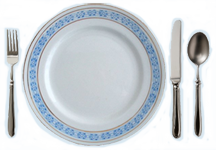Sign Up For Our
Monthly Newsletter
View our
newsletter archive

The Cocktail Post
cocktail recipes.
The Butcher's Block
The Kitchen Table

resident foodie, is cooking up
in her home kitchen.
Recent posts:
- Steak Frites
July 24, 2024 - Salmon Rillettes
July 18, 2024 - Marseille Style Shrimp Stew
July 10, 2024 - Homemade Merguez Sausage
July 3, 2024 - Nectarine Tart with Frangipane
June 27, 2024 - Roasted Sheet Pan Chicken with Stone Fruit and Onions
June 20, 2024 - Cherry Barbecue Sauce
June 12, 2024
